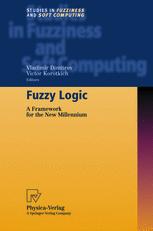

Most ebook files are in PDF format, so you can easily read them using various software such as Foxit Reader or directly on the Google Chrome browser.
Some ebook files are released by publishers in other formats such as .awz, .mobi, .epub, .fb2, etc. You may need to install specific software to read these formats on mobile/PC, such as Calibre.
Please read the tutorial at this link: https://ebookbell.com/faq
We offer FREE conversion to the popular formats you request; however, this may take some time. Therefore, right after payment, please email us, and we will try to provide the service as quickly as possible.
For some exceptional file formats or broken links (if any), please refrain from opening any disputes. Instead, email us first, and we will try to assist within a maximum of 6 hours.
EbookBell Team

5.0
60 reviewsAt the beginning of the new millennium, fuzzy logic opens a new challenging perspective in information processing. This perspective emerges out of the ideas of the founder of fuzzy logic - Lotfi Zadeh, to develop 'soft' tools for direct computing with human perceptions. The enigmatic nature of human perceptions manifests in their unique capacity to generalize, extract patterns and capture both the essence and the integrity of the events and phenomena in human life. This capacity goes together with an intrinsic imprecision of the perception-based information. According to Zadeh, it is because of the imprecision of the human imprecision that they do not lend themselves to meaning representation through the use of precise methods based on predicate logic. This is the principal reason why existing scientific theories do not have the capability to operate on perception-based information. We are at the eve of the emergence of a theory with such a capability. Its applicative effectiveness has been already demonstrated through the industrial implementation of the soft computing - a powerful intelligent technology centred in fuzzy logic. At the focus of the papers included in this book is the knowledge and experience of the researchers in relation both to the engineering applications of soft computing and to its social and philosophical implications at the dawn of the third millennium. The papers clearly demonstrate that Fuzzy Logic revolutionizes general approaches for solving applied problems and reveals deep connections between them and their solutions.